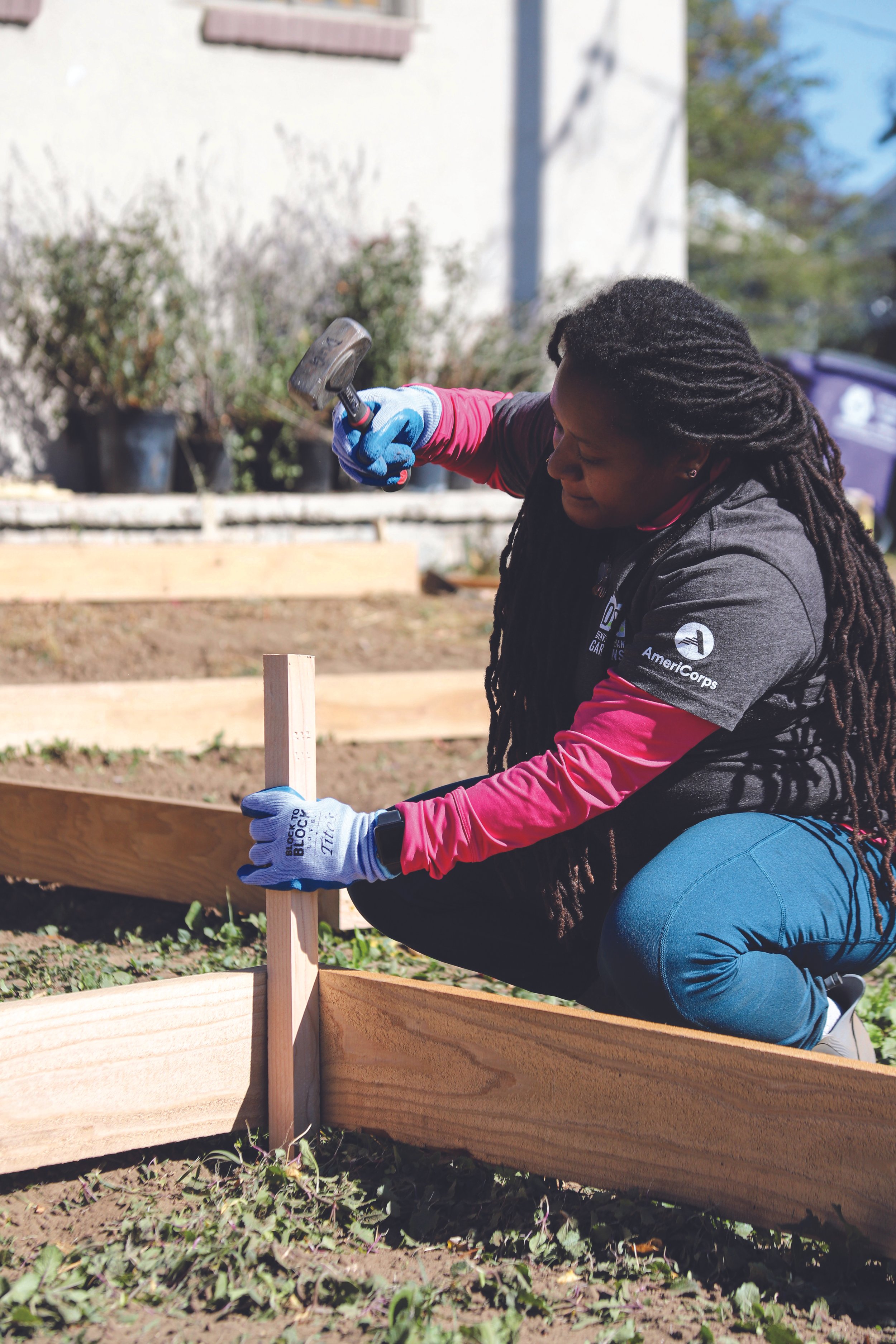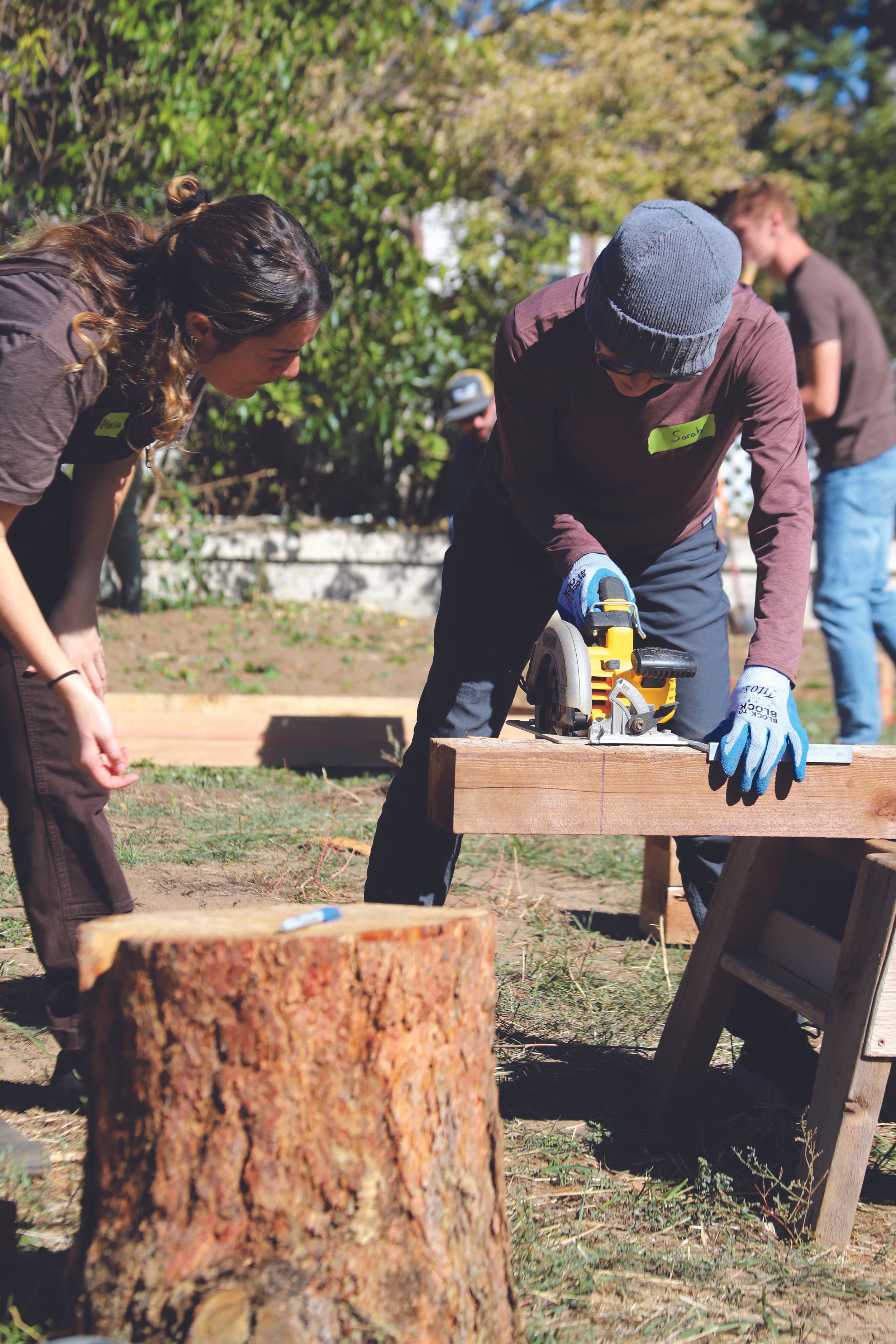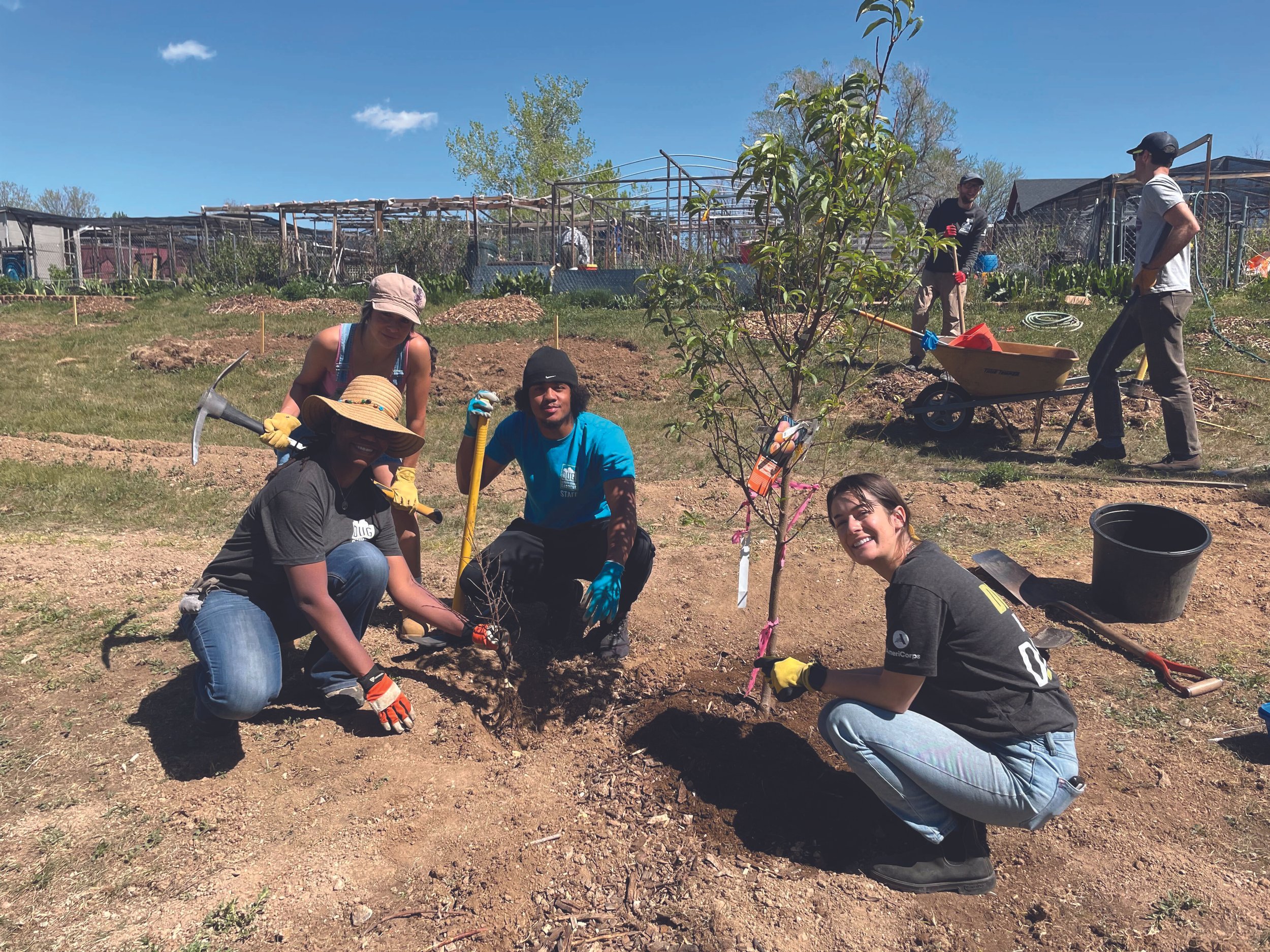For 40 years, DUG has helped communities grow and share food
Courtesy of Feed Media
Story by Grace Thorburn
Building a garden plot from the ground up in one day is no easy feat Fortunately, the community members who showed up to Denver Urban Garden’s 200th plot build were willing to get their hands dirty. DUG, a 40-year-old nonprofit, built its 200th garden at 48th Avenue & Julian Street in Denver on October 13, 2023.
Volunteers at the build included DUG community members, leadership from the Denver Parks and Recreation Department, and dedicated volunteers from Love, Tito’s, the vodka brand — who also sponsored the event with food drinks, and music for volunteers.
As the largest independent network of food-producing gardens in the United States, DUG’s reinspiring communities to grow and share food.
All of DUG’s gardens are community-run. Their mission is to provide access, resources, and skills for communities to grow food in regenerative urban green spaces. According to a 2022 survey, 81% of the food that was harvested by DUG gardeners was donated or shared with others.
Forty-four new plots were built in 2022, which allowed space for 176 new community gardens. Come spring, 20 plots at the 48th & Julian community garden can be utilized for fresh produce.
The plot where DUG’s most recent garden was built is city-owned land that had originally been part of Rocky Mountain Lake Park. It was vacant for about 60 years, due to construction along I-70, which separated the land from the park.
“One of the amazing benefits of our partnership that we have with Denver Urban Gardens is the fact that we identify opportunities,” said Chief of Staff at Denver Parks and Recreation Mark Bernstein. “We collectively have that vision for how we can take underutilized spaces like this parcel here and sort of reimagine it to have a much greater purpose that will serve the community.”
The Pecos Community Garden was birthed by four Hmong families who immigrated to the United States in the late 1970s and was established as DUG’s first garden in 1978. These families have stuck together since the beginning to maintain the garden as a source of fresh food and to hold onto the age-old tradition of bonding with each other.
On May 3, 2023, when the U.S. Surgeon General Dr. Vivek Murphy released an advisory calling attention to the public health crisis of loneliness, isolation, and the lack of connection in the U.S., DUG’s work became more important than ever.
Even before the onset of the COVID-19 pandemic, approximately half of U.S. adults reported experiencing measurable levels of loneliness. According to Dr. Murphy, loneliness increases our risk of mental health challenges and premature death, amplifying the need for community gardens to regenerate the land and increase community engagement and food access.
Community gardens that take the place of grass “capture way more carbon, require a lot less water, and the temperature when you have dense plantings like this [is decreased], so the heat island effect is reduced, and the biodiversity gets increased,” said Linda Appel Lipsius, DUG’s CEO. “There are so many climate benefits, and when you take these times the 200 gardens we have, that’s some serious acreage.” The heat island effect refers to urbanized areas that experience higher temperatures than other outlying areas.
DUG supports its gardens in a variety of ways, mainly by providing approved access to land where communities can come together to grow food and by coordinating volunteer groups to help maintain the gardens.
“Increasingly, there are fewer opportunities for you to interact with your neighbor, and your neighbor is maybe a different age, background, or socioeconomic status,” said Lipsius. “In these gardens, people come together who wouldn’t normally have the opportunity to work together, and it’s a thing of beauty. We [DUG] think that community is a lost art or skill, and these [urban community gardens] help bring them back.”
“Having more outdoor space instead of just an open lot is awesome,” said Carl Keating, a volunteer at DUG’s 200th garden build, who said he enjoys helping with a community movement that’s fostering more engagement in the community. “People might just figure out they have a green thumb.”
To apply for a plot at 48th & Julian in Denver, email 48thandjuliancommunitygarden@dug.org.
Food Forests to Address Food Deserts
Adjacent to the recently built community garden is DUG’s 19th food forest in the metro Denver area. The freshly planted trees that make up this food forest at 48th Avenue and Julian Street were planted in September as a regenerative food source for the community. So, what are food forests and how do they address food deserts?
Food deserts are exactly what they sound like — places where affordable produce is hard to come by. The Etkin Family Food Forest Initiative was launched in the spring of 2022 to plant accessible food forests in small and underutilized areas in both public spaces as well as alongside community gardens. This initiative is one of many DUG programs that benefit residents in underserved communities.
DUG’s food forests are shade-producing and are planted with water-conscious dryland techniques and are thus built to thrive in a changing climate. Food forests usually are made up of seven layers: canopy/tall trees, understory, shrub, herb, groundcover, root, and vertical climber. Each food forest in Denver is maintained by at least two “Tree Keepers,” who will ensure the survival and establishment of these trees and plants.




